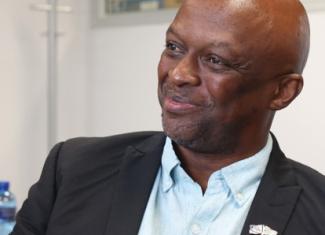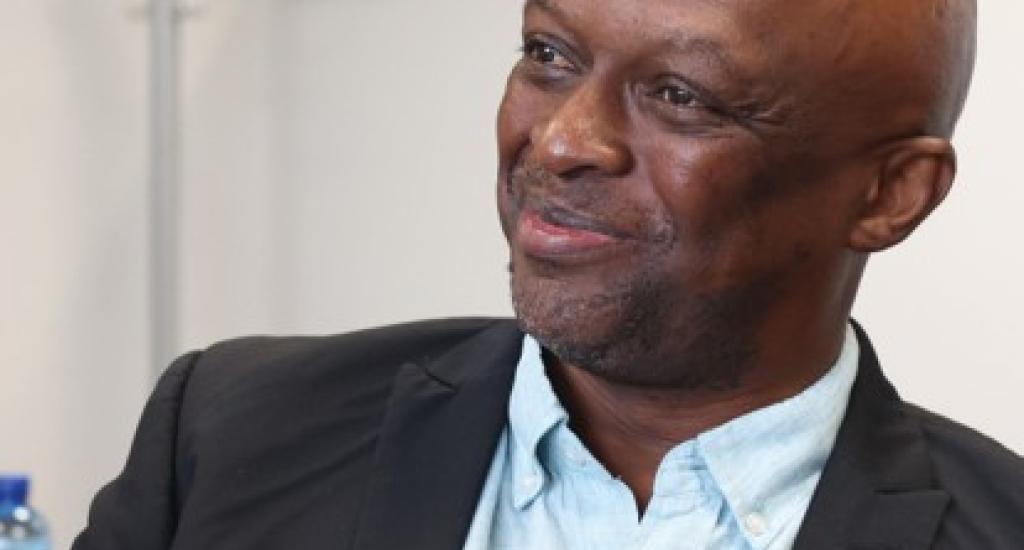Ndarana leads digital transformation at AGSA

With the rapid advancement of technology, finding innovative solutions to the everyday challenges faced by citizens is no longer a distant dream. Phila Ndarana, the Chief Technology Officer (CTO) of the Auditor-General of South Africa (AGSA) and his team are at the forefront of this transformation, leveraging modern technological tools to revolutionise the country’s auditing processes.
Ndarana who assumed his role in 2022, is mainly responsible for driving the digitisation of the organisation to enable employees
to effectively execute its strategy. He does this by aligning technology with strategic priorities of the AGSA, ensuring that innovation supports the organisation’s goals.
Culture Shift 2030
The CTO noted that the office already has impactful initiatives in place, such as the Culture Shift 2030. The strategy aspires to have a more direct, stronger and consistent impact on improving the lives of ordinary South Africans by improving the public sector culture through insight, influence and enforcement.
“When we audit now, we no longer focus only on debits and credits, but we also check if auditees are doing the right things,” he said.
He explained that the strategy’s objectives include monitoring the culture shift through auditing and influencing the auditees to improve their work by using the insight that is avail- able to the AGSA.
Ndarana added that, through the Culture Shift 2030 strategy, they are replacing the 28-year- old system currently used by the AGSA with new technology – to enable auditors to perform their work more efficiently.
He explained that the new technology – audit software programme (ASP) – “focuses on improving collaboration with our auditees by ensuring that the workflow is digitised, ultimately enabling the organisation to deliver its work efficiently”.
For nearly two years, Ndarana stated, the digital transformation strategy has been a work in progress. Recently, the AGSA began testing the ASP and pro- viding training to auditees on how the system operates.
The pilot phase of ASP was expected to be rolled out to relevant stakeholders at the end of the 2024/25 financial year, when accounting officers were preparing and submitting financial statements and annual reports. The programme will then be further piloted in August 2025, when reports pertaining to the Municipal Finance Management Act of 2003 are prepared and submitted.
During the pilot phases, the AGSA will be welcoming suggestions from the selected auditees, focusing on what works and what needs to be improved to ensure that the ASP works optimally before its full rollout. “Once the ASP is verified to be effective, we will start rolling it out to the rest of our auditees next year, and we are hoping to start seeing the benefits of the programme coming into the business,” he added
Embracing AI
Another project that Ndarana and his team are working on is the Robotic Process Automation (RPA), which integrate solutions into the system. This technology addresses repetitive and time-consuming manual processes, such as entering the same information into a spreadsheet each month. A robot takes over these tasks, automating them efficiently and relieving users from the burden of manual entry.
“This will help us to see some serious efficiencies. We currently have about ten robots running in the organisation, which I am very proud of, and I am hoping that in the next few years we will have quite a few more,” he said.
With the Fourth Industrial Revolution taking over the world, the AGSA is also exploring the potential of artificial intelligence (AI), which Ndarana views as an opportunity rather than a threat in the audit profession.
“We have a vast amount of data, and AI helps to analyse it very quickly instead of having someone go through it. Soon, we will be able to free up the auditors’ time so that they can apply their judgement, creativity and critical thinking while they allow the AI to do the heavy lifting as we call it,” he said.
Ndarana is not concerned about AI replacing professionals in the auditing field or negatively disrupting the profession.
Instead, he believes AI will forster greater creativity among auditors, allowing them space to do their work, including applying professional judgement and identify risks before they occur.
“I do not think that we should fear it. I think it will augment the work that we are doing,” he added.
Improving cybersecurity
One of the biggest challenges that IT professionals face is cybersecurity, which Ndarana refers to as a big existential trend.
“As hard as we work on the good side of IT, there are other people on the other side who are also working very hard to penetrate and cause harm to the systems. To mitigate this, we are refreshing our IT infrastructure,” he said.
Although this does not mean that the risk will totally be eliminated, it will harden the AGSA internal environment to ensure that the entity is secure and robust. Part of that requires educating internal staff about pros and cons of new technology. To support this, Ndarana led a company- wide cybersecurity awareness drive in October 2024.
Strategic positioning
Leading from the front, Ndarana believes that it is crucial for people of his caliber in the IT field to occupy top executive positions within organisations – something that was not common in the past. This enables them to influence decisions, contribute to the formulation of strategies, and oversee the execution and management of those strategies.
“When I was appointed into this position, I was fortunate to discover that I would be part of the Executive Committee. This is very important because the IT leader needs to understand where business is going, understand all the new technologies that are coming, and understand the problems and challenges of the organisation so that they can help come up with solutions that are technology-related,” he said.
His positioning means that digitisation is at the core of running the business. He reports directly to the Deputy Auditor-General, who oversees the organisation’s overall operations.
His hard work and dedication led to his nomination for the 2024 CIO Awards. Although he did not walk away with a trophy, Ndarana said the nomination was a win.
“This was a recognition for the work that we do as a team. This means that we are on the right track, and that our colleagues in the IT profession are recognising our work,” concluded.
Career background
- Ndarana holds a Bachelor of Commerce in Information Systems and Economics from the University of KwaZulu-Natal.
- He also completed a Gordon School of Business Senior Management Development Programme with Sanlam and University of Stellenbosch Business School.
- He has a Lean Six Sigma (Black Belt) with Nubiz (Qualtec accredited) which focused on ensuring that processes in business are not stale or expensive.
Professional background
- Ndarana had a stint career as a teacher while studying towards his BCom degree.
- After completing his degree, he was employed as an IT Trainee Manager at Woolworths. Some of the positions he held at Woolworths include Informix Programmer, Analyst Programmer, Retail Academy Programme, Team Leader for Store Systems, and Systems Manager.
- Ten years later, he was appointed Director for IT in the Premier’s Office in the Western Cape Provincial Government. Six months into the job, he ascended to the Chief Information Officer (CIO) position.
- He also worked as Head of Project Portfolio Office at Sanlam un- der the Personal Finance division. He later transitioned to Sanlam Private Wealth as a CIO.
- He later joined Absa Insurance as a CIO.
- Before joining the AGSA, he worked as a Chief Digital Officer at Ubank.




